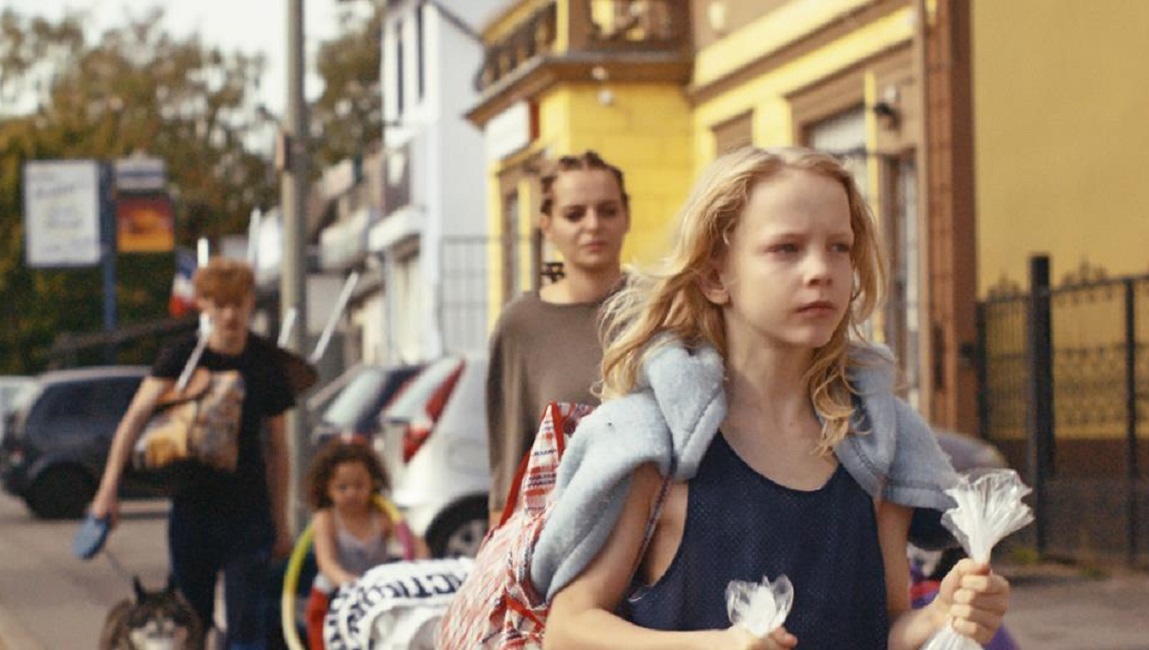The forest greens and crumbling modernist estates of the Eastern French town of Forbach provide the backdrop for Softie (Petite Nature), a queer coming-of-age story from Party Girl director and Camera d’Or winner Samuel Theis. A father’s hands shake as his 10-year-old son, Johnny (Aliocha Reinert), expertly rolls him a cigarette. He, his siblings, and their mother are moving out hastily, and under duress. Relocating to a rough estate, where they share a one-bedroom apartment, Johnny doesn’t see his life as amounting to more than working as a salesman, or in McDonald’s.
Then Theis drops a cool teacher into the mix. Mr. Adamski (Antoine Reinartz, from BPM and Non-Fiction) rides a motorbike, smokes, and jokes with his kids. He sees potential in the educationally neglected Johnny, and when he takes his class out onto the playground for a science lesson, and teaches them to sense their pulse by holding his fingers to Johnny’s neck, it is clear that Johnny doesn’t just appreciate an inspirational teacher, but is experiencing the first stirrings of same-sex attraction.
Softie can move quite slowly. As Theis settles his audience into Johnny’s new environment, the film seems to meander, delivering familiar social miserablist dramatic beats. He has to take care of his sister, a toddler, as their white, cornrows-donning mother is clearly struggling with working-class life and bad relationships. The lovers that she welcomes into her bed become the subjects of Johnny’s watchful gaze, as he quietly awakens to the gentle and empathetic nature that separates him from other men. At a local carnival, he spies his mother having sex in a car, which inspires him to begin stalking Mr. Adamski back to his plush house, where he is on a date.
This intermittently ramps up the stakes, but Softie never quite leans into any particular emotional extreme. Often, it returns to a twee romanticism that mirrors The Florida Project, but without that film’s bold visual style or sense of humor. Jacques Girault’s cinematography is proper no-frills filmmaking — competently geting the point across in each scene, and then moving on, and it pays off to great effect in certain scenes, such as one featuring a school shooter drill wherein Johnny sees his teacher as a grand protector.
It all builds to a genuinely awkward scene of attempted liberation, which ambiguously lays out several moral choices for Johnny, Mr. Adamski, and their respective families. The film’s inclination to reward Johnny for his self-discovery leads to a certain patronizing positivity toward the film’s final stages, and its reliance on the likes of William Basinski’s Disintegration Tapes to do much of the emotional heavy lifting drags the unassuming viewer out of the film’s dramatic momentum. But despite its light manipulations, Softie nonetheless manages to achieve a level of psychological realism across its 95-minute runtime, anchored by a wonderful central performance from the young Aliocha Reinert.
Published as part of Cannes Film Festival 2021 — Dispatch 1.







